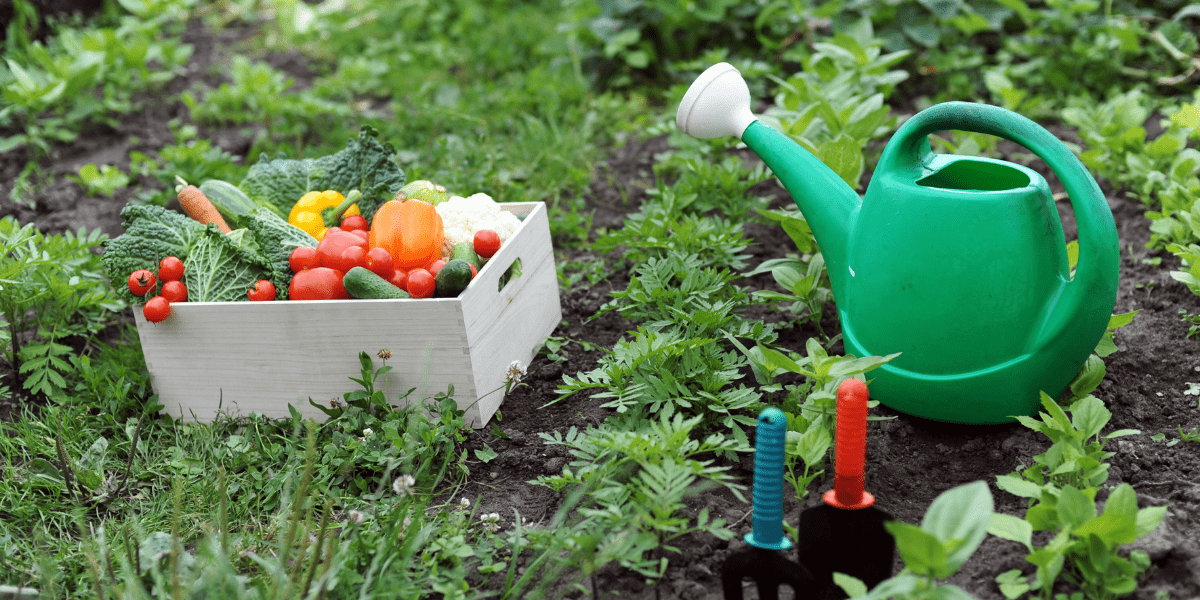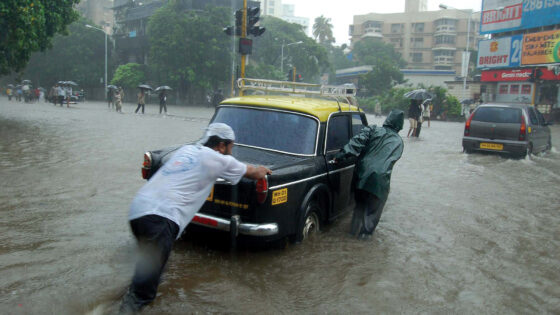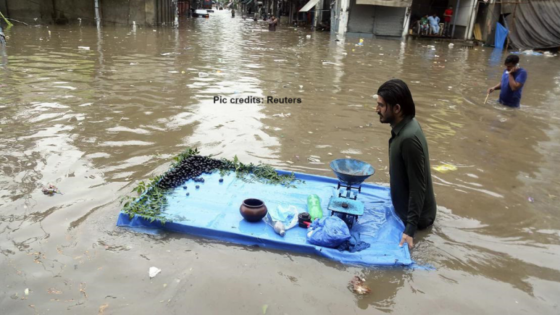The agriculture sector in Jammu and Kashmir has always been at the mercy of uncertain weather, structural problems and lack of investment. However, a rapidly changing climate is making the sector even more vulnerable in the face of droughts and extreme weather. With changes in rainfall patterns, agriculture faces threats from both drought and flooding. These growing vulnerabilities can destroy crops and exacerbate the threat of food scarcity. The impacts of extreme weather events and shifting climates also mean that agricultural pests, that retard growth or kill plants, can now expand to areas where farmers hadn’t previously dealt with them. They are expected to impact ecosystems as well, such as affecting pollinators, and natural predators that cater to pest control.
The bottom line is the following. Kashmir valley has a largely agrarian economy with a strong agricultural food sector, but every bit as vulnerable to unprecedented challenges that climate change poses.
Kitchen gardening offers low-cost and sustainable solutions, in harmony with the environment, to problems in the food system; threatened by climate change, mainly through the effects of predicted abiotic stresses.
The practice of setting up and maintaining a kitchen garden in Kashmir, locally known as Ve’ar, is as old as farming itself. Recognizing its importance at present, most people in Kashmir are tending to kitchen gardens, through experience and necessity. They have chosen to be self-reliant, especially at a time when it has become indispensable to grow food simply at home; in inhospitable climates. For many Kashmiris, especially women in rural areas, setting up and maintaining a kitchen garden has become their way of life. Cultivating a kitchen garden in an environmentally friendly way not only offers respite from stress, but it has numerous ecological and financial benefits. Freedom from daily visits to markets to buy expensive vegetables is one such benefit. The most common vegetables grown in kitchen gardens in Kashmir are tomatoes, spinach, gourd, cucumbers, cauliflower, string and green beans, green chilli, potatoes, mint, bottle gourd, coriander, and the famous collard greens -haakh. The kitchen garden acts as a saviour; protecting people from pesticide exposure, and helping them meet their daily nutrient requirements. On top of this, the vast majority of food waste generated in households is efficiently managed and utilized as compost for the soil, fertilizing it naturally, in kitchen gardens. This results in less garbage in landfills and less resource consumption.
Climate change represents the greatest challenges to maintaining the sustainability of agricultural systems stressed by increasing food demands. Therefore, agrarian activities such as kitchen gardening that favour agricultural sustainability by bringing economic and environmental benefits merit further discussion.
By 2050, the world population is expected to increase to almost 10 billion. With 3.4 billion more mouths to feed and the dependence of the middle class on dairy and meat products in developing countries, global demand for food could possibly increase by 59%-98%. What this means is agriculture around the world needs to rev up production and increase yields. But scientists are of the opinion that impacts of climate change — extreme weather, drought, higher temperatures, sea-level rise, and increasing levels of carbon dioxide — threaten the quantity and quality of food supplies.
It has been well known that warmer temperatures may increase crop yields. However, the overall impact of climate change on agriculture is expected to be negative — reduction in food supplies and increase in food prices. Many regions in the world suffer from high rates of hunger and food insecurity which include parts of sub-Saharan Africa and South Asia. These are predicted to experience the greatest declines in food production. And to top it off, elevated levels of atmospheric carbon dioxide (CO2) are expected to lower levels of iron, zinc, and other important nutrients in crops.
Floods wash away the fertile topsoil farms depend on for productivity, whereas droughts dry it out. Higher temperatures increase water needs and make crops more vulnerable during dry periods. Certain species of insects, weeds, and other pests benefit from this higher temperature and elevated CO2. It also increases their potential to damage crops, creating financial hardship for farmers.
With higher temperatures, most of our planet’s glaciers have begun to recede. This is affecting farmers — those who depend on glacial melt-water for irrigation. Meanwhile, rising sea levels compound flood dangers for coastal farmers. It also increases saltwater intrusion into coastal freshwater aquifers, thus making these water sources too salty for irrigation purposes.
In such scenarios, home-based gardens for food production will go a long way in pacifying, to some extent, the ever-increasing resource needs of most urban/rural lower and middle-class families in India. Apart from self-reliance, food security, thus, represents a significant factor in highlighting the importance of kitchen gardens in Kashmir. It encourages the idea of safeguarding our food production by being sustainable in approach and mindful in waste generation. People who cultivate crops and raise cattle; know their environment very well. Even though many among them might still be unsure or ignorant about scientific developments in crop production, yet they have an established sense of preservation. And in doing so, they act as front-runners in the race to save our planet. Self-sustainability is one of the main attributes of people with the least ecological footprint.
Recommendations
Our challenge is not to dismantle our current system of food production, but to help it evolve. And to better protect and promote public health, preserve natural resources, and improve food production and quality. No one-size-fits-all approach can help achieve these goals, given the complexity and dynamic nature of agriculture and our food system as a whole. Instead, a range of evidence-based approaches is needed. Approaches combining traditional wisdom with current science to ensure a sustainable, healthy, and equitable food system for everyone, at all times.
Therefore:
1. Cultivating a kitchen garden must become a sense of pride and accomplishment for every Kashmiri. It should not be perceived as unsophisticated or retrograde. Simply put, in this day and age, whilst examining the current world scenario, it represents the optimal way to overcome food scarcity.
2. Brainstorming for projects to maximize food production and reduce crop loss by adequately predicting and managing flood and drought risk should be encouraged by all concerned departments/research centers/educational institutes.
3. Improving financial practices and helping farmers explore new schemes for sustainable food production should be considered. These schemes can be extended to farming at home, strengthening the concept of kitchen gardening in Kashmir. Motivating people towards growing their own food and providing them incentives to help wherever possible is a must.
4. Before a food crisis unfolds, the need for relief efforts must be identified.
5. State-of-the-art climate information and prediction tools to be introduced.
6. Building quantitative economic models to examine vulnerabilities in our food system under different scenarios. This can be used to explore how changing certain policies might reduce vulnerabilities of the food system to disruptions.
Being strong in body and mind, acting resolutely, and adapting to survive makes us humans apex predators in the global food chain, and also the ones responsible for protecting it. Kitchen gardening will make us sustainable and independent for daily necessities. It highlights the basic human attributes we still share with our prehistoric ancestors today — our will to survive, even in turmoil.
References:
1. https://www.foodsystemprimer.
2. https://www.foodsystemprimer.
3. https://news.climate.columbia.








Leave a Reply
You must belogged in to post a comment.